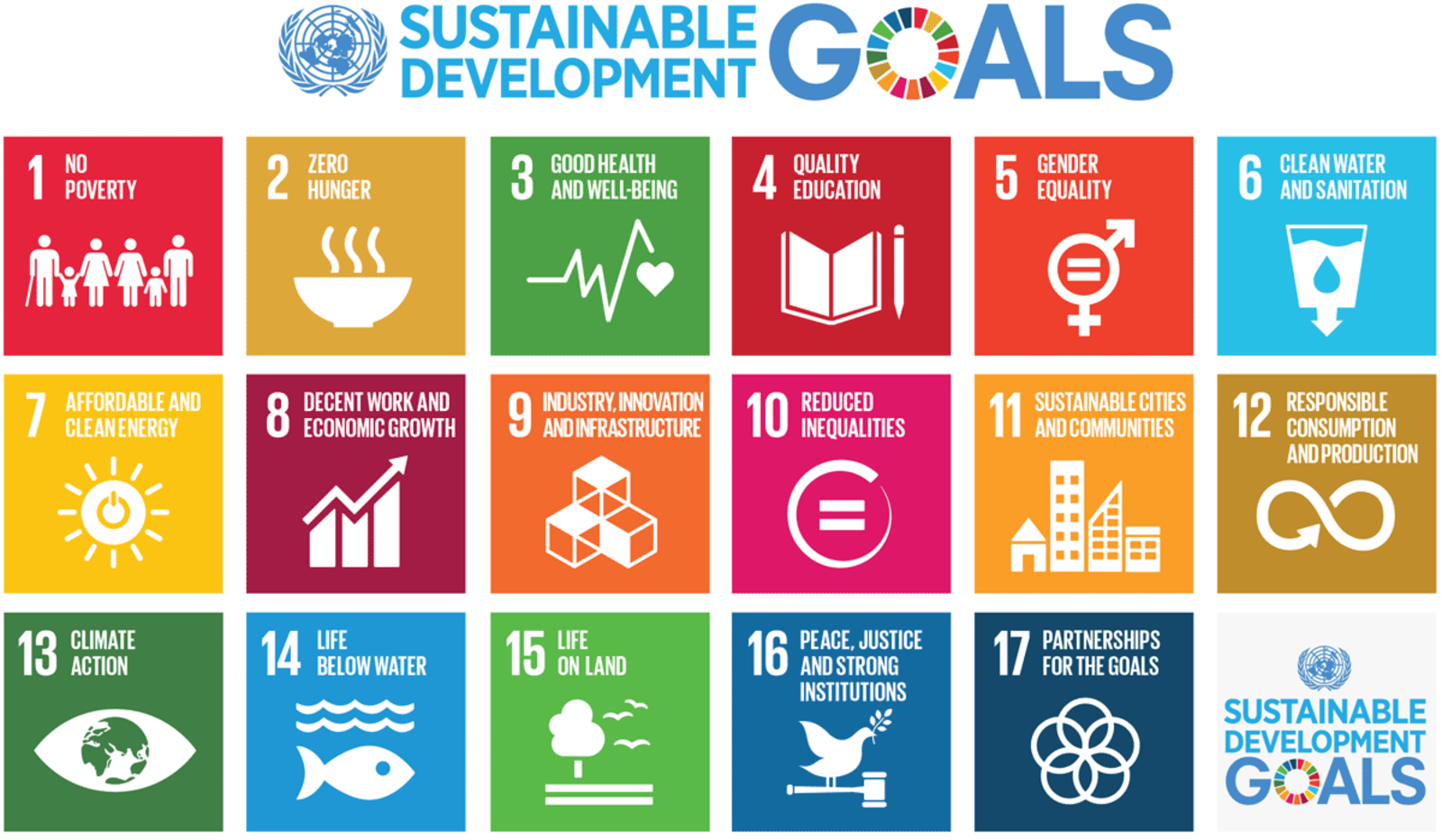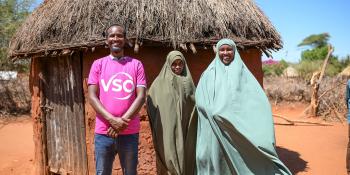Despite significant leaps forward in global health over the past few decades, millions of people are unable to access the healthcare they deserve. It’s now imperative that we reach those left behind, writes VSO health lead Clive Ingleby.
The last 30 years have seen significant advances in global health. Fewer women are dying in childbirth, with global maternal mortality falling by 44% between 1990 and 2015. The mortality rate for children under five has more than halved in the same time frame, with more children than ever reaching their fifth birthday. Improved treatment of HIV has resulted in similar progress: deaths as a result of the virus have decreased from 2 million in 2005 to under a million in 2017.

However, the benefits of development are not felt by everyone. As the world becomes more connected through technology, we’re still seeing groups of people pushed to the margins. These groups are coping with the negative impacts of climate change, other forms of environmental degradation, and limited access to a decent livelihood, quality education and the healthcare they deserve.
To truly ‘leave no one behind’, we must look deep into health systems, and into all aspects of people’s lives
– Clive Ingleby, health lead at VSO
The Sustainable Development Goals, a set of goals agreed by all United Nations countries, places the emphasis firmly on reaching the most vulnerable and disadvantaged: “To promote physical and mental health and wellbeing, and to extend life expectancy for all, we must achieve universal health coverage and access to quality healthcare. No one must be left behind.”
This throws down a challenge to anyone working in healthcare today. To truly ‘leave no one behind’, we must look deep into health systems, and into all aspects of people’s lives – the conditions in which people are born, grow, work, live and age.
Why are people being ‘left behind’?
As the lead for health at VSO, I’ve seen firsthand how healthcare can leave the most vulnerable behind, and how our projects are working to change this.
Those most at risk – and whom I have observed VSO actively seeking to prioritise in our health interventions – are those who endure disadvantage or deprivation as a result of multiple factors including low socio-economic status, discrimination, geographic isolation, ineffective or unjust governance or shocks and stresses such as climate change, natural hazards, conflict, displacement or health emergencies. When two or more of these factors are experienced simultaneously, the risk to those affected is even greater.
These people are slipping through the cracks, and this is when they become ‘left behind’, unable to benefit from any progress taking place around them.
The people we might consider ‘left behind’ includes – but is not limited to - women living in poverty, children, adolescents and youth, persons with disabilities, people living with HIV/AIDS, older persons, indigenous peoples, refugees, internally displaced persons and migrants, lesbian, gay, bi-sexual, transgender and intersex communities and prisoners.
Their specific situations and challenges must be understood and recognised, their voices heard, and action taken to empower them to be able to realise their fundamental right to health.
Putting people first
At VSO, our work in health looks at two areas: maternal and newborn health and adolescent and youth sexual and reproductive health and rights. Our focus is on ensuring people can live healthy lives and the promotion of wellbeing for all.
To deliver on this, we work through volunteers to empower people to lead their own development, in collaboration with partner organisations and staff.
By working together we can find innovative solutions, changing the current status quo and building resilient, accountable and inclusive health systems.
This contributes to the creation of more just and fair societies where the health rights of the most marginalised are realised.
Supporting deaf communities in Rwanda
In Rwanda, deaf adolescents and youth have been left out conversations about their sexual health and rights, unable to communicate with health professionals to express their needs and understand their options.
This has led to high incidences of gender-based and sexual violence, unwanted and unsafe pregnancy, and increased vulnerability to HIV and STI infection.
VSO’s Imbere Heza project in Rwanda is bridging the gap between deaf youth and the hearing community, working through VSO volunteers who themselves have hearing impairments
These volunteers are teaching health professionals how to use sign language, reducing stigma around the sexual health needs of deaf people whilst enabling them to provide better sexual and reproductive health services to deaf patients. The volunteers also train young deaf girls and boys about all aspects of their sexual and reproductive health and rights, and the dangers of sexual exploitation.
Fighting stigma in Ethiopia
In Ethiopia, VSO has been supporting a campaign to provide better treatment to poor rural women in Tigray affected by the distressing, disabling and highly stigmatised condition known as pelvic organ prolapse (POP).
The condition involves one or more of the pelvic organs (bladder, colon and womb) falling out of position and bulging out of the wall of the pelvic floor.
It occurs most frequently in women who have had teenage pregnancies, had more than five children, or have experienced obstructed labour while giving birth.
For women affected, the condition can lead to incontinence and mobility problems, as well as psychosocial and sexual problems, the break-up of marriages and resulting economic challenges.
Fortunately, the condition is correctable. VSO volunteer doctors have been deployed to provide treatment in remote communities to affected women, offering women corrective procedures, free of charge.
At the same time, VSO has worked with health practitioners, academics, government leaders, and the media, including the BBC and Reuters, to raise awareness about POP and to work with them to undertake specific actions on behalf of women affected.
Helping HIV-positive prisoners in Southern Africa
Prison populations are one group that is being overlooked, when it comes to global health interventions.
Prisoners have some of the worst health outcomes in society, with prison settings experiencing incredibly high rates of HIV, STIs, TB and hepatitis. Nutritional provision is extremely poor and many prisoners also experience significant mental health problems.
Yet most prisoners are eventually released back into society and there is a lack of recognition that good prison health is good public health.
VSO is working to enable prisoner populations to access their basic health rights by working with civil society organisations to train volunteers from prison communities to provide psychosocial support, cell-based care, support to help them stay on their HIV medication, and to provide HIV, sexual health and other health information to their peers.
VSO has also undertaken the development of volunteer led ex-inmate associations, dedicated to supporting recently released prisoners to access healthcare and livelihood support to reduce the risk of criminals reoffending.
These three projects mark the beginning of a new and exciting phase for our health work, as we strive to address the challenges presented by a more inequitable world and to reach those most in danger of being left behind.
Read more about our health work here:
Latest posts

A ripple of change: how VSO volunteers are transforming communities
Every act of volunteering begins with a choice — a decision to act out of a desire to make a difference. Across the world, VSO volunteers are proving that one spark of action can ignite something much bigger.

The two volunteers empowering girls and young women in Mozambique
Nelma and Carmirene and are two volunteers working on VSO's EAGLE project in Mozambique. For Nelma and Carmirene, education is not just about school, it is about meeting people where they are and using the right tools to challenging harmful norms. Here are their stories.
Opening doors to safety, education, and a brighter future
For girls in Karamoja, the poorest region in Uganda, being forced into early motherhood is all too common. This Christmas, you can open the doors to Safety, Education, and a Brighter Future.
